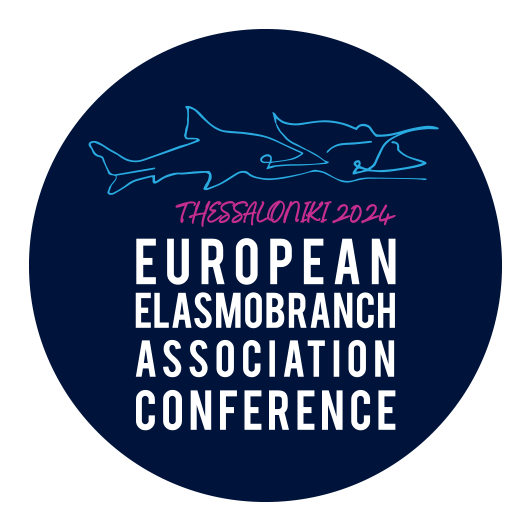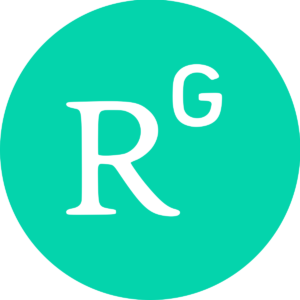 Marine litter pollution is identified as a major global environmental issue. The amount of litter that accumulates in the marine environment (coastline, surface, water column and seabed) poses numerous threats to the marine environment and the human health, including environmental, social and economic impacts.
Marine litter pollution is identified as a major global environmental issue. The amount of litter that accumulates in the marine environment (coastline, surface, water column and seabed) poses numerous threats to the marine environment and the human health, including environmental, social and economic impacts.
The greatest sources of marine macro litter are land-based activities, such as tourism and industry, while marine sources of pollution include activities such as fishing, shipping, mining, etc.
 The issue of marine litter is included in the EU Marine Strategy Framework Directive (MSFD) (2008/56/EC) with the aim of taking measures to achieve Good Environmental Status (GES) of the marine environment in the context of the European Environment Policy. More specifically, according to Qualitative Descriptor 10 of the EU MSFD requires EU Member States to ensure that “properties and quantities of marine litter do not cause harm to the coastal and marine environment”. In this regards, Europe is paving the way for litter-free coasts and seas by setting a threshold value of 20 litter items for every 100 metres of coastline to reach GES.
The issue of marine litter is included in the EU Marine Strategy Framework Directive (MSFD) (2008/56/EC) with the aim of taking measures to achieve Good Environmental Status (GES) of the marine environment in the context of the European Environment Policy. More specifically, according to Qualitative Descriptor 10 of the EU MSFD requires EU Member States to ensure that “properties and quantities of marine litter do not cause harm to the coastal and marine environment”. In this regards, Europe is paving the way for litter-free coasts and seas by setting a threshold value of 20 litter items for every 100 metres of coastline to reach GES.
The majority of the Mediterranean population is concentrated along its coastal regions, while its coasts also attract hundreds of millions of tourists annually. Combined with its geomorphology, these factors play a key role in the increased concentration of litter; as a result, the Mediterranean is considered the most polluted European sea.
In Greece, significant fragmented and yet persistent efforts for monitoring marine litter are carried out by a variety of organisations and entities mainly under European projects, since 2015. Although, the country continues to submit reports for the evaluation of Descriptor 10 in the context of EU MSFD, the aforementioned sources of information have been largely ignored, despite potentially providing valuable spatiotemporal information on the issue.
The EVMAR project focuses on evaluating the marine litter problem in Greece, through the data collected by all actors involved in clean-up and monitoring activities.
The issue of marine litter
The project
In a nutshell, the main aim of the project is to develop a database and a final report including:




The database will be open access and free to everyone interested in further research and analysis, while it will contribute to the prioritization of the pollution prevention actions and plans in Greece by all relevant stakeholders (research centers, NGOs, foundations, businesses, institutions, etc.), as well as in the implementation of the National Waste Prevention Plan.
Whether your organization or you individually participate in coastal or underwater cleanups, your contribution is important in the data collection for the monitoring of aquatic litter in our country!
To help you out, within the framework of the EVMAR project, a monitoring form for data collection was created in accordance with the requirements of the EU Marine Strategy Framework Directive.
If you are interested in contributing to the research on marine litter in Greece and the Mediterranean, send your scientific publication to the special issue of the project in the international scientific journal MDPI Sustainability entitled “Marine Litter Distribution, Data Collection and Data Harmonization in the Mediterranean Sea”:
Scientific Advisor
Cooperators
|
|
 |
 |
 |
 |
|
 |
 |
 |
|
 |
 |
 |
Funder
The project is implemented by iSea and funded by Thenamaris, (Ships Management) Inc.
Project's Team:

Ioanna Tzioga
Ioanna was born in Thessaloniki in 1995, she studied at the University of Thessaly, at the Department of Ichthyology and Aquatic Environment in Volos. Her Bachelor Thesis, focused in the variation of phytochromes and phycocyanin in the port of Volos. She completed her internship at the Aristotle University of Thessaloniki, at the Department of Biology, by being mainly involved in data collection.
She completed her MSc at the International University of Greece in Thessaloniki, at the Department of Food Science and Technology. Her Diploma Thesis focused on microplastics in the sediment on the sandy shores of Thessaloniki’s Gulf. She has attended various seminars related to the Aquatic Environment, Digital Marketing and AI. Moreover, she has obtained Information Technology (IT) and First Aid Certifications. Currently, she works at iSea as Assistant of Communication and Engagement.
Contact Info:
E-mail: ioanna.tzioga@isea.com.gr
tel. +302313090696

Ioannis Giovos
Born in Thessaloniki, Ioannis is a graduate of the Biology Department of the Aristotle University of Thessaloniki, with a Master’s degree in Fisheries Biology and Management from the same University. Currently, he continues his studies at the University of Patras in collaboration with the University of Padua as a Ph.D. Candidate focusing on shark and ray conservation policies.
With over a decade of experience in Mediterranean apex predators conservation and having served in major organisations such as the Tethys Research Institute, the Institute of Marine Research and the European Commission’s Joint Research Centre, Ioannis currently coordinates several projects and initiatives related to the conservation of sharks and rays in the Mediterranean. At the same time, he is a member of the International Union for Conservation of Nature (IUCN) Shark Specialist Group, he is the current President of the European Elasmobranch Association. He has more than 50 articles published in scientific journals and more than 60 communications at international and national conferences while he has been involved in the drafting of 3 Action Plans for Endangered Species and participated in the publication of 5 books. He speaks 3 foreign languages, Greek (native) English (C1), Spanish (B2) and is a PADI diving instructor. He’s the Conservation Officer of iSea.
Contact Info:
Email: ioannis.giovos@isea.com.gr
tel. +302313090696

Anastasia Charitou
Anastasia is a graduate from the Department of Primary School Education, with a master degree in Environmental Education, the Aristotle University of Thessaloniki (Department of Biology in collaboration with the Department of Preschool Education). She has worked in the field of mainstream and special education for 4 years.
She is actively involved in iSea since 2016, by contributing to a wide range of topics and projects, related to aquatic litter pollution and the relation between human and the aquatic ecosystems. Among others, she has led the active involvement of key stakeholdres in tackling and monitoring marine litter pollution, iSea’s awareness raising campaigns for the effective protection of the marine environment and vulnerable species, and the active participation of citizens in the shape of environmental policies. In addition, she significantly contributed to iSea’s strategy development and the issues of organizational importance. In addition, she recently became member of the Med Sea Alliance Steering Group that plays a key role in shaping the strategic direction and coordination of the Alliance.
Anastasia is now the Communication Officer of iSea, where she leads campaign strategy and fosters strong stakeholder engagement in marine environmental protection.
Contact Info:
Εmail: anastasia.xaritou@isea.com.gr
Tel. +302313090696







